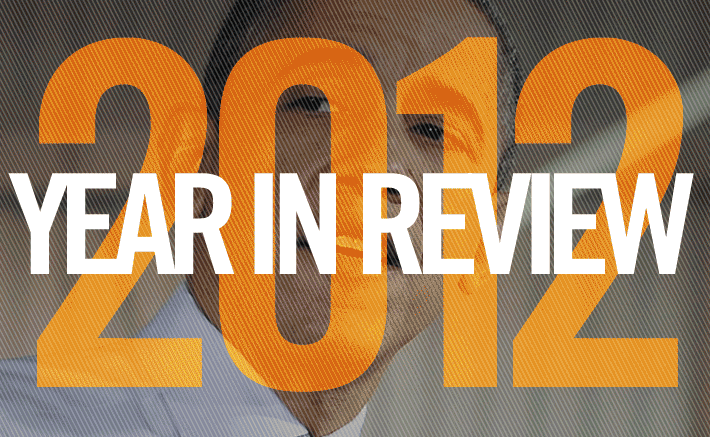
“I told her the letter would be coming, we just wanted to give them a verbal heads-up on the decision,” says Kelly. “We’re not going to explain it to them in that letter. We had an RFP committee, and the RFP committee selected Cornell Cooperative, and that’s basically all the letter is going to say. We’re not giving them a second chance.”
The Brennans also haven’t received an official letter saying they must vacate the property, and although the county insists Cornell is getting the land, Cornell board president Nancy Youngfert isn’t so sure.
“It’s not official, as far as I know, and I would be the one who would know since I’m the president of the board of directors,” says Youngfert. “We haven’t been told anything definite yet.”
Asked about the bidding process, Youngfert says, “I couldn’t speak to that.”
She says Cornell went through the bidding process in the same way Friendly Farms went through the process, and says Cornell plans to keep the property open to the public, run some kind of a farm stand and keep it organic.
“That’s the intention,” she says. “I know what Cornell intends to do there, but I don’t know if we’re going to get to, and I don’t know if the [Brennans] are going to get a chance to do it there because I have not heard anything official at this point.”
GOOD NEIGHBORS
Right now the whole situation seems to be one big game of he-said-she-said. But regardless of whether the family farm stays or the Cornell farm moves in, many locals, and other farmers, are worried they are going to lose a good neighbor and a good customer.
“This has been a family farm for so many years,” says Ronald Brigati, owner of White Post Farms, who Brennan buys seeds from and has known for 40 years. “They work so hard it would be a shame to destroy what so many have worked on for so many years.”
The Brennans also use the land to run programs for autistic children and adults and provide a popular field-trip destination for local schools and groups like the Girl Scouts.

“When the bus pulls up, I stand out front with my arms open,” says Brennan, with tears in her eyes.
“It’s not even our farm,” says Danielle. “It’s the community’s backyard and they are fencing that off, so you’re just going to have a farm behind a white picket fence that the community doesn’t have access to.”
The county argues the Brennans bring in produce from off-site locations and that the farm isn’t contributing as much as they say they do to the community.
“Very little of what the Brennans sell there comes from that site,” says Kelly. “Cornell wants to sell products and produce that are grown on Long Island just like the Brennans.”
But the Brennans argue the same point. During their peak in the summer months, Brennan says they buy more than $3,000 a week from other local farmers in both Nassau and Suffolk counties. She adds some farms have acres dedicated just to grow the produce bought by Family Farms.
“I feel bad for them,” says Mark. “They’ve been here for six years and they’ve put a lot of effort into the business. We don’t know what’s going on.”
Grossman’s in Malverne, a family farm sold to the county through the same Environmental Bond Act, is transitioning into a community-supported agriculture (CSA) organic farm. The Nassau Land Trust has taken over the property as part of the “Grown on Long Island” campaign, which promotes locally grown produce. Plans for the property include the CSA—a system that allows local residents to buy a membership and pay in advance for their weekly or bi-weekly share of organic produce—and the establishment of a farm stand where non-members could purchase fresh organic produce roadside. The first planting of buckwheat plants took place in August.
This is the a scenario that the Brennans had hoped for—winning the bid for the land and continuing to operate as a fully functioning organic farm, not a facility with educational programs and demonstrative gardens as its focus, which the Brennans feel creates somewhat of a disconnect with the neighboring community.
“We don’t know how much of a farm it is going to be because [Cornell and the county] haven’t made that public,” says Danielle. “They could say we’re going to use half this land to build a structure and the other half will be our farm.”
And, according to the county, that is exactly what the intention is.
“This is going to be [Cornell’s] headquarters,” says Schroeter. “There is an improvement project to build a new building, and the county is going to pay for that.”
He says the “homemade building” that exists on the property now will be demolished to make room for the new building.
But this homemade building is what houses the family business, and there is no place the Brennans can store some of the structures they bought for the farm, like the greenhouses.
“Everything, we bought for ourselves,” says Danielle. “So, in two months’ time we have to figure out a way to do something with all this? How do you move two acres of land?”
The Brennans have worked the land and invested money in its upkeep over the past six years they have been in charge of the property—and the county is offering no compensation for the family’s efforts.
“Personal property they are going to have to move; their things are their things,” says Schroeter. “They’ve been compensating themselves as they go along. We’re not going to give them any further compensation.”
“They have made no settlement offer for our efforts on this land, or for what we have turned this land into, or for the fact they are not adhering to the women and minority bidding laws, or for the fact that they are pushing out a small community business to give a big business the land with taxpayer dollars,” says Brennan’s daughter, Bernadette.
In the meantime the Brennans have collected more than 2,000 signatures on a petition to keep their business up and running. They are currently planning a rally at the location and waiting for the county to back down or December 31, whichever comes around first.
“In the end, it’s whether you want the local hardware store or the local Home Depot; it’s whether you want an educational facility, something more touristy, or a farm run by your neighbor who you see everyday,” says customer Denise Reynolds. “And in the end it may all be legal—and maybe, by the book, this whole deal is OK. But just because something is legal doesn’t mean it’s the right thing to do.”






